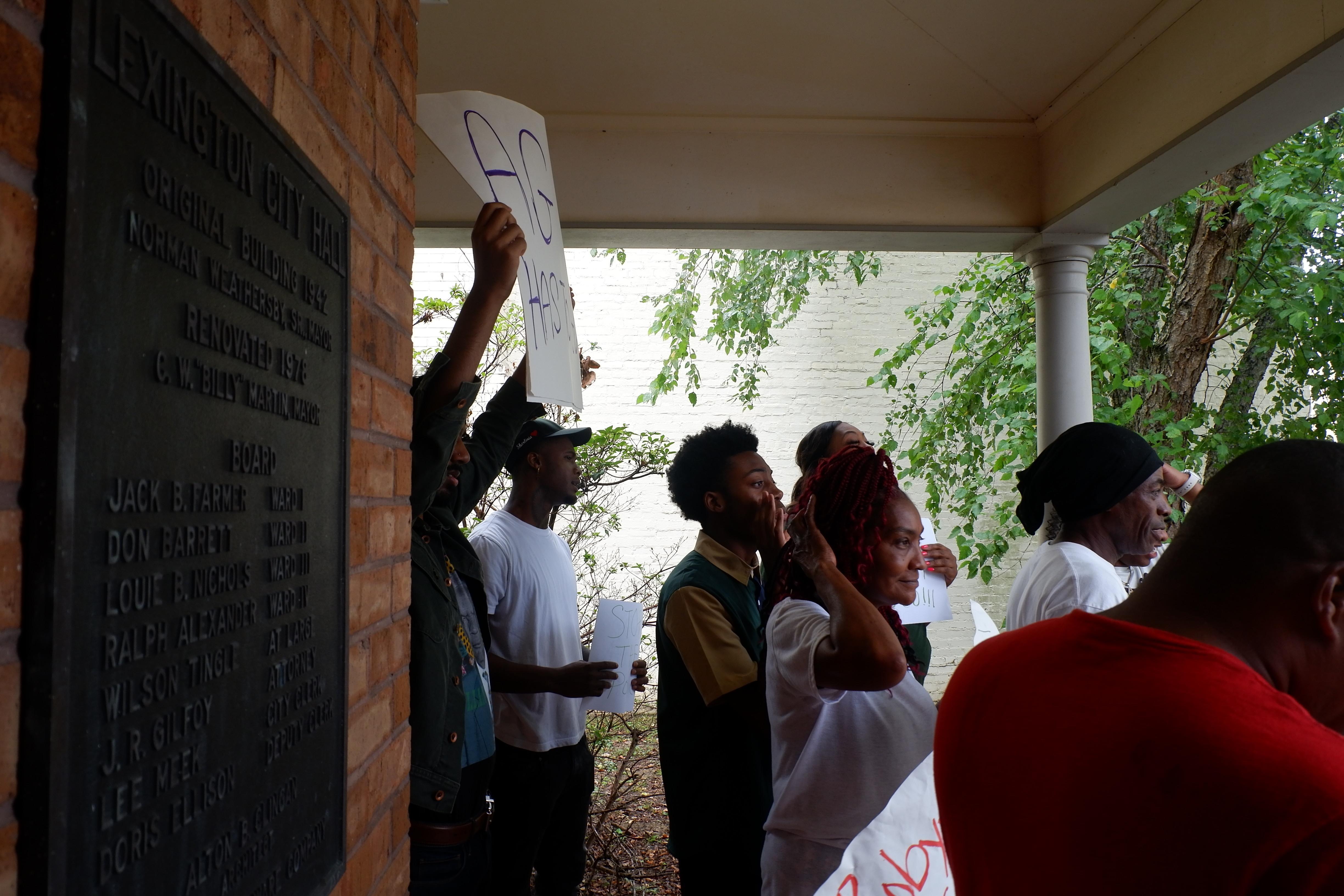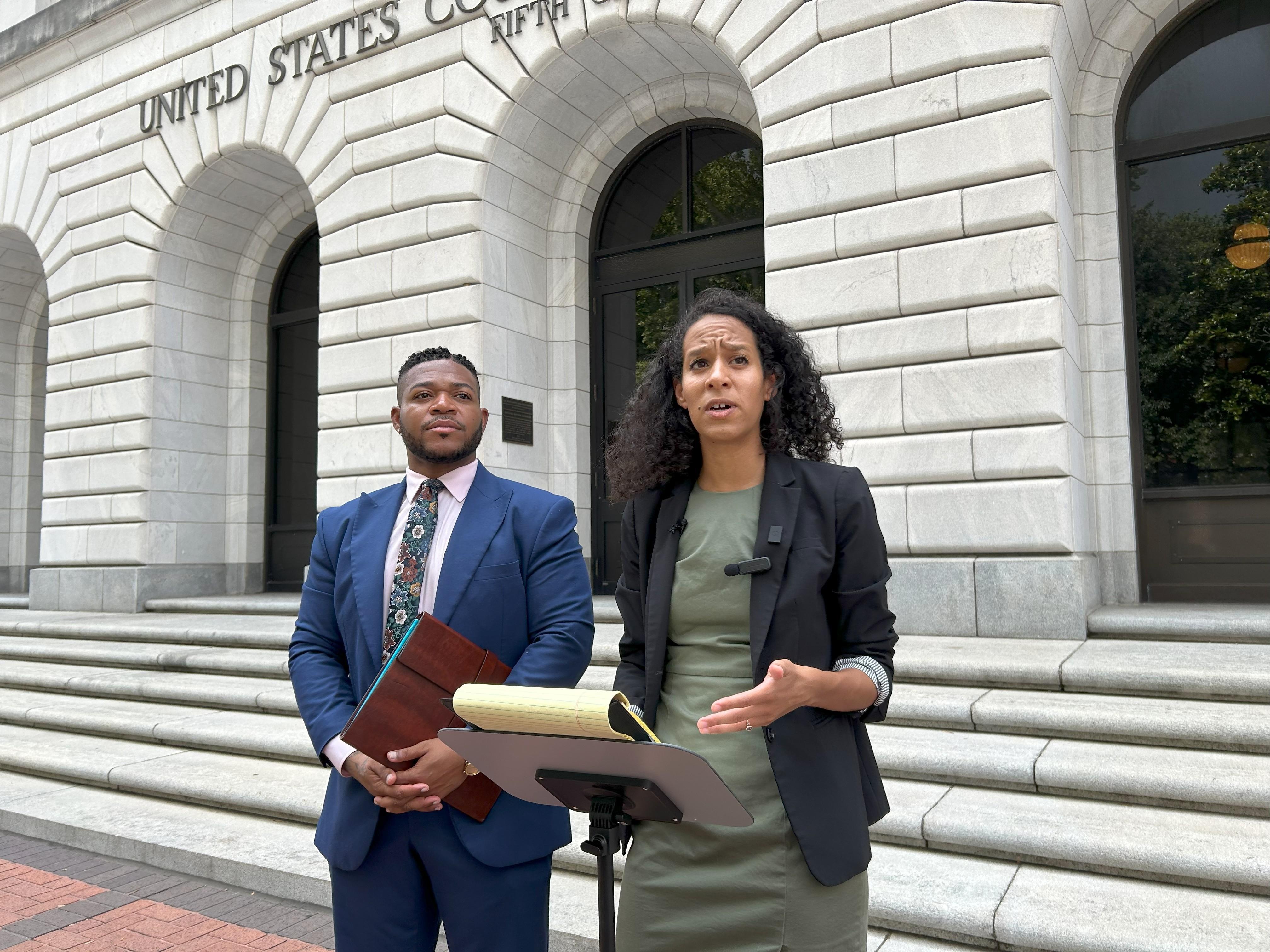About an hour north of Jackson, Lexington is the seat and highest population center of Holmes County, home to the nation's third highest populace of residents who are African American and a rich history of Civil Rights struggle, personified by figures like Fannie Lou Hamer and Hartman Turnbow.
According to the 2020 Census, when sorted by median household income, Holmes is also the second poorest county in the United States.
Despite that, and with a poverty rate nearing 36 percent, the DOJ’s pattern and practice probe found that through an unconstitutional 'stop and fine' policy conceived by the Lexington Police Department to generate revenue, each man, woman and child in Lexington owes at least $1,400 in fines and fees, totaling more than $1.7 million in a town of little more than 1,200 people.
The investigation, conducted jointly by the Justice Department’s Civil Rights Division and The U.S. Attorney’s Office for the Southern District of Mississippi, also found a litany of evidence that both officers and supervisors in LPD engaged in a systemic use of excessive force, illegal stops and searches, unlawful arrests, violations of free speech, denial of due process and discrimination against Black residents.
They also say LPD itself relies on funding from the money it raises through its law enforcement, which presents an unconstitutional conflict of interest.
“Lexington’s fines and fees have been absolutely devastating for the people who live there,” said Kristen Clarke, former Assistant Attorney General for the DOJ’s Civil Rights Division under the Biden administration.
“The Lexington municipal court has issued bench warrants for over 650 people based on unpaid fines — equivalent to roughly half of Lexington’s population,” Clarke said in Sept. 2024.
Black residents of Lexington have for yearsalleged that both the police department and the city government engage in patterns and practices that target Black residents, who comprise roughly 77 percent of the town’s population.
Over time, that fear has seeped into the quotidian in Lexington, where something as routine as traveling through town to buy groceries or pick a child up from school has become reason for some to move entirely.
In June, 2023, dozens of Lexingtonians gathered for a closed-door community listening session with then head of the DOJ’s Civil Rights Division, Kristen Clarke, to voice their concerns.
The pattern and practice investigation was announced later that year.
But now nearly two years since that first meeting – and with the Civil Rights Division now defanged under President Donald Trump – residents and their attorneys say Lexington Police have begun to revert to the status quo.
“I think there was a sense that after the former [police] chief, Sam Dobbins, was fired, that there would be changes. I think that there was this sense that after the DOJ investigated, there would be changes. There's been four or five private lawsuits filed in hopes that there will be changes and, in our client's view, not a lot has changed,” said Lauren Bonds, Director of the National Police Accountability Project.
“Usually when you sue a small police department like Lexington, you have one plaintiff and you have one defendant; you maybe have one or two claims. But when the NPAP and Julian sued the Lexington Police Department back in 2022, we had five plaintiffs, seven defendants – a collection of current and former Lexington Police Department officers– and over a half dozen claims,” she said.
“The reason this lawsuit is different is because the Lexington Police Department is different. As we alleged in our suit, there are systemic issues that are so deep and so numerous that few members of the black community of Lexington are safe from them.”
The group of plaintiffs, all Black residents of Lexington or nearby, rural communities, were the first to formalize complaints and reports of abuses when their federal Civil Rights suit was filed in late 2022.
Several similar lawsuits have followed its model since.
At that stage, many had faced abuse and harassment from Lexington police for years, including frequent LPD roadblocks they felt were targeted at Black residents.
Beginning in 2021, when former police chief Sam Dobbins was appointed by the city’s Board of Aldermen, the roadblocks occurred almost exclusively around community events where officers thought they were more likely to encounter Black motorists, such as graduation ceremonies or sports games at the town’s predominantly Black public school.
Other times, the roadblocks covered roads to and from the county’s numerous foundational churches on days of worship.
“They were set up so frequently over the short period that it caused a huge disruption in the regular lives of our clients, and other members in the Lexington community,” said Lauren Bonds, with the NPAP.
“It caused them to miss family events, it caused them to lose work opportunities. It caused one of our clients to drive 30 miles round trip to get groceries from another town.”
The lawsuit, now before the Fifth Circuit Court for reconsideration after being rejected by a lower district court, is seeking injunctive relief – providing the five original plaintiffs with the opportunity to stop an illegal practice or policy should the court rule in their favor.
In this case, that would mean the Lexington Police Department, and by extension the city government – currently in the midst of a municipal election concluding June 3 – would have to end their unconstitutional policy of targeted road blocks, subsequent fines and excessive use of force.
In a sense, the first five plaintiffs to sue Lexington over those practices – Malcolm Stewart, Peter Reeves, Eric Redmond and brothers Robert and Darius Harris – invited the full weight of LPD retaliation and harassment onto themselves for the chance to end them for the entire community.
Outside the June, 2023 closed-door DOJ meeting, several of them told MPB News that the harassment from police only increased as a result – not with the targeted stops and fines, but rather by tailing the men through town, threatening and carrying out further violence and, in the case of the Harris brothers, threatening their lives.






